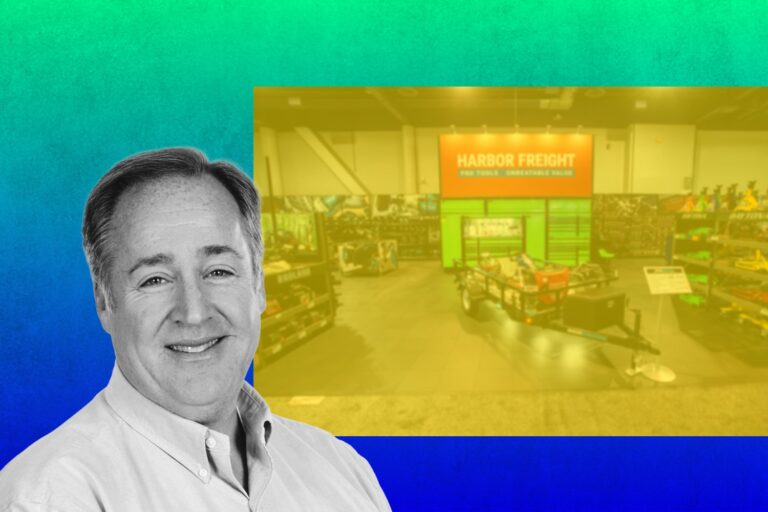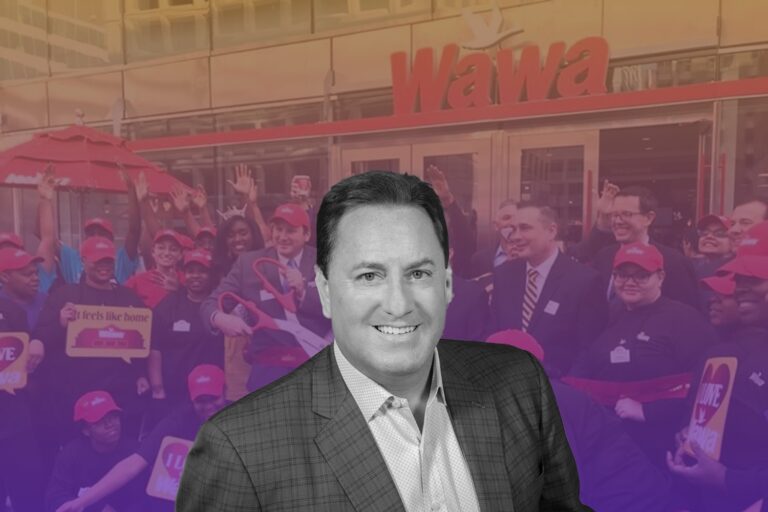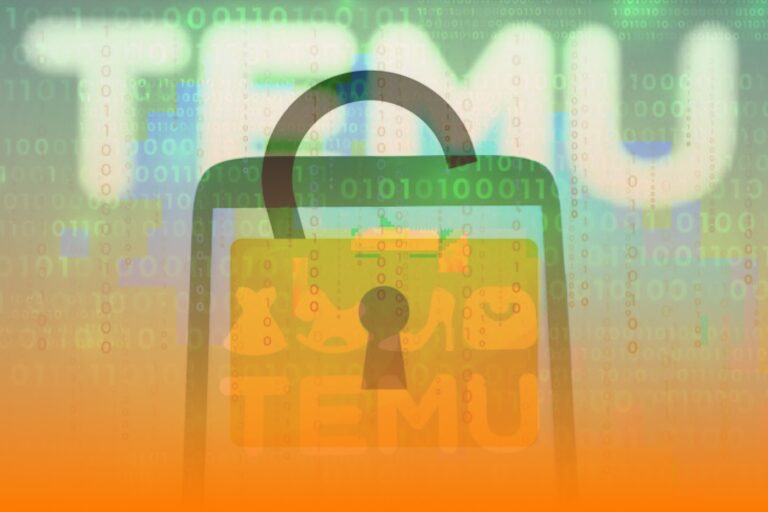Revving Up Retail: The Secrets Behind QuikTrip’s Rapid Expansion
In the bustling landscape of American retail, convenience stores stand as a vital lifeline for everyday needs, seamlessly blending the functionality of fuel stations with the accessibility of quick grocery shopping.
With over 150,000 convenience stores across the U.S. in 2022, including a notable presence in Texas, the convenience store industry has become a staple of American life. The industry also generated $814 billion in sales in 2022, with over 50% derived from fuel transactions.
QuikTrip, headquartered in Tulsa, Oklahoma, is a key player in this sector. It operates on the premise of providing consumers with a one-stop solution for fueling up and shopping for groceries and merchandise.
QuikTrip: The Rapid Rise of a Convenience Store Giant
Founded in 1958, QuikTrip has steadily grown in the convenience store industry. By 1962, after nearly four years of financial struggles, the company achieved a major milestone by ending the fiscal year with a positive net worth. At that time, QuikTrip had eight stores and total sales of $1,090,008.
By 1967, QuikTrip had expanded to 43 stores, generating annual sales of $5.5 million and employing 167 people. The company continued its growth in 1968 by opening its 150th store in Grandview, Missouri, marking its first expansion beyond Oklahoma.
In 1971, QuikTrip merged with Shopeze, a Wichita-based convenience store chain, which increased its store count from 69 to 97, with plans to reach 120 stores by the end of the year. During this time, QuikTrip also began selling gasoline, with store No. 58 in Tulsa becoming the first to offer fuel.
The company’s expansion continued into 1999, making entry into the Dallas-Fort Worth area, traditionally dominated by 7-Eleven. This region has since become one of QuikTrip’s major markets.

Over the years, QuikTrip has expanded to 17 states, including recent additions like Alabama, Arkansas, Colorado, Louisiana, Tennessee, and the Chicagoland area. By 2023, the company had reached 1,000 stores.
To support its growth, QuikTrip has introduced Remote Travel Centers in high-traffic areas, further boosting its expansion and presence.
Why QuikTrip Stands Out: Success Factors Explored
So, in the competitive landscape of the industry, what makes QuikTrip set itself apart?
The success of QuikTrip would be incomplete without acknowledging the contributions of the Cadieux family.
How the Cadieux Family Shaped QuikTrip’s Success
QuikTrip was initially driven by Burt Holmes’ vision, inspired by his observations of 7-Eleven stores during a trip to Dallas. Back in Tulsa, Holmes teamed up with his old friend Chester Cadieux, who was crucial to the company’s growth.
Chester Cadieux invested $5,000 of his own money, matched by Holmes, and together with additional funds from other investors, they opened the first QuikTrip store.
Chester Cadieux stated, “Well, Burt Holmes and I, you know Burt Holmes started QuikTrip. I mean he had raised some money. He had asked two or three other people if they would like to be the President of QuikTrip and work the night shift and get started and all that sort of thing. All of them had better jobs than I did and they didn’t want to do that and I just jumped on it I mean it was like … because I had these rules.”
“I had the rule that it had to be simple, cause I didn’t know anything. It had to be low-cost, cause I didn’t have any money. And I didn’t like competition, because if you’re a printing salesman, everybody in the world had a printing press in their garage, I mean that’s a dog-eat-dog business. And I didn’t want to get into something with real tough competition cause you couldn’t survive. And here comes Burt,” he added.
Chester not only played an important role as an initial investor but also took on the position of the company’s first full-time employee and president at just 26 years old. His leadership guided QuikTrip through the opening of its first 400 stores.
In 2002, Chester’s son, Chet Cadieux, succeeded him as president. Chet, having worked in various capacities within the company, continued the family legacy, steering QuikTrip to new heights. QuikTrip has seen only two leaders in over 65 years, with the Cadieux family maintaining control throughout.
Forbes lists QuikTrip as the 17th largest private company in the country. QuikTrip’s status as a family-owned business offers distinct advantages that contribute to its long-term success and adaptability in the convenience store industry.
As a privately owned entity, QuikTrip benefits from having its founders and owners retain full control over business operations. This autonomy allows them to make decisions without needing approval from external shareholders or a board of directors.
Besides, QuikTrip enjoys the advantage of financial privacy, as it is not required to disclose detailed financial information like public companies must.
Importantly, operating as a private business means QuikTrip is not subject to the extensive regulations imposed by the Securities and Exchange Commission (SEC) on public companies. This reduction in regulatory constraints allows QuikTrip to operate more efficiently and focus on its core business practices without navigating complex compliance issues.
How QuikTrip’s Focus on Food Fueled Its Rise
Today, QuikTrip is well-known as a gas station, but it started out as something quite different. When it first opened, QuikTrip was a small grocery store that sold basic items at higher prices for the sake of convenience – just as the name suggests, it was a place for a quick stop to pick up what you needed.
Interestingly, just eight days after opening their first store, the road it was on was closed for construction, making it hard for customers to get there. Despite this challenge, the store still saw sales thanks to construction workers nearby.
The founders stayed dedicated to their vision, even though they only became profitable after opening their fourth store.

By the 1970s, as QuikTrip began to thrive, they expanded into selling gasoline, which boosted customer traffic by about 10%. To take advantage of this influx, they started offering more common, lower-margin items like candy and cigarettes.
They also introduced their own private label beer, “Quittin’ Time” (QT for short), followed by various private label food products. Pioneering innovations like self-service soda fountains set them apart early on.
In 2013, QuikTrip further enhanced its appeal by adding QT Kitchens to nearly all of its stores. These full-service counters offer a range of made-to-order foods, including pizzas, sandwiches, pretzels, pastries, and a signature milkshake known as the Quick Shake. The QT Kitchens have become a popular feature, adding to the store’s reputation for convenience and quality.
When being asked about QuikTrip Kitchens idea, Chester Cadieux said, “My son Chet because when he became CEO – and we knew we were weak in food and that’s the driving force that we’re pushing right now. We’re still not very good at it. But we have commissaries and we have bakeries in all but one of our markets and we’re under construction there and that’s Dallas,”
“But we’re serving all of our stores except the Dallas stores with bakery (items) and with fresh sandwiches every day. And that’s been a $30 million investment to get that lined up. And then losing money in those things until we get enough volume and enough trained people to really get good at it,” Chester added.
Chester Cadieux’s approach to quality control highlights QuikTrip’s commitment to maintaining high standards, even when it means absorbing initial losses. According to Cadieux, QuikTrip learned early on that relying on external suppliers for their food products often led to compromised quality.
Suppliers might cut corners by using less expensive ingredients, which would affect the final product. To counter this, QuikTrip decided to handle production internally, despite the financial challenges.
Chester Cadieux noted, “We learned a long time ago that if somebody else is doing it, we won’t get the quality. They’re going to cut on cheese, or they’re going to cut on whatever the good ingredients are. They’re going to not start out that way and you know we’ve got them squeezed down and they’re trying to make money and so we just have to be the ones that lose money to get up to volume to make it work.”
Why Gasoline Is Key to QuikTrip’s Story
QuikTrip has been a staple in convenience retail, but it wasn’t until 1971 that the company began selling gasoline, as mentioned above. And this decision marked the beginning of a transformation for the business. By the 1990s, gasoline sales had become a cornerstone of QuikTrip’s operations, contributing to half of their overall revenue.
In 1991, QuikTrip introduced a notable innovation in customer service: a guarantee on their gasoline. This promise ensured that if a customer’s vehicle suffered any damage due to their fuel, QuikTrip would cover the repair costs.
This guarantee was marketed with a blend of assurance and subtle challenge, encouraging customers to “buy your fuel from QuikTrip with complete confidence or take your chances somewhere else.”
According to Chester, “We went to Guaranteed Gasoline, so if you had a problem with gasoline and your mechanic said that gasoline was the problem we would pay for the repair, and pay for another tank of gasoline. But that’s so rare that you have that problem. And it’s not the gasoline, you’ve got sludge in the tank that you didn’t clean right or, it has to do with operations.”
“And we did a better operations job than most independent gasoline stations had. Because we had a process that we checked for all of that sort of thing and we were very proud of it. So there’s a lot of maintenance and things you have to stay up with. It’s not the gasoline. It’s poor management of the gasoline, or the gasoline carrier. So we got on to that program and we just learned a huge amount,” he added.

The impact of this guarantee was profound. By 2008, QuikTrip claimed responsibility for 1.7% of all gasoline sold in the United States. It highlighted how important their fuel business had become. With their customer service guarantee, QuikTrip established a strong brand identity in the fuel market.
QuikTrip continued to innovate in the 21st century. In 2016, they opened a store in Atlanta without a gas station for the first time in 24 years. This was part of their plan to try new store formats.
In 2022, they introduced a store in Tulsa with Amazon’s Just Walk Out technology, which lets customers shop and leave without checking out the traditional way.
Employee Satisfaction as a Cornerstone
Moreover, from its early days, QuikTrip has placed a strong emphasis on its employees. They have long paid their store managers significantly more than the industry average, believing that this investment would be repaid through increased efficiency and a positive work environment. This focus on employee satisfaction ultimately benefits their customers.

Today, QuikTrip employs over 28,000 people, many of whom were hired in the last decade to run their QT Kitchens.
The company is known for offering competitive pay and benefits, including medical insurance, 401(k) matches, tuition reimbursement, and a stock ownership plan. They claim that this plan has helped many employees become millionaires as the company’s value has risen.
QuikTrip has been recognized on Fortune’s list of the 100 best companies to work for, with a workforce exceeding 24,000. The company has consistently earned top rankings for its product quality and exceptional customer service in the convenience store industry.
“We learned whom we could work with, and how important people were. And so when I started, we paid better. We didn’t have competition but we paid what assistant managers made in super markets for store managers and they made a little less and whatever. And they made almost as much as I did. $10 a week was what I made then because we were trying to get quality people, cause we needed them if we were going to grow,” Chester shared.
“So I would interview 10 people to hire one. And that was my discipline, which used to drive me crazy. And now we hire probably one out of 30. Because we have psychological testing, we have mental testing. If you get to an interview, you’ve got 1 chance in 3 of getting hired because you’ve already been screened, so we’re really careful with whom we hire,” he added.
QuikTrip’s Reputation as a Driving Force
In a world where some companies are loved by many, QuikTrip is a clear favorite. Many people have given positive feedback about QuikTrip, showing that they have a strong and lasting good reputation. This isn’t just a temporary feeling; it’s supported by real success.
In 2024, Forbes released its list of customers experience All-Stars, derived from an online survey of 175,000 people evaluating about 3,100 brands. QuikTrip secured the 18th spot on this prestigious list, highlighting its exceptional customer service and overall positive experience.
A solid reputation is a valuable asset, especially when a company is expanding into new areas. Word-of-mouth, media coverage, and even videos like this one help spark interest and draw people in before they ever visit a new location.
The bussiness has built its great reputation over many years with a few key things. They’ve offered 24-hour service since the 1970s, making them a reliable and convenient choice. Their stores are usually new and bright, thanks to regular updates and their unique red and white colors.
Plus, QuikTrip gives 5% of its profits to local charities, which helps create a positive image and goodwill in the community.
With a positive public image, QuikTrip is well-positioned for success as it expands into new markets. However, the convenience store sector is becoming increasingly competitive. Many regional chains are aggressively pursuing growth, leading to a shift towards more national chains. This competitive environment could lead to mergers or public stock offerings as companies vie for market share.
As the landscape evolves, it will be fascinating to watch how these developments unfold. With five of the 30 largest private companies in the U.S. being regional convenience store chains, the industry is ripe for change and growth.
QuikTrip’s strong reputation and commitment to customer experience will likely continue to play an important role in its success amid this dynamic market.









